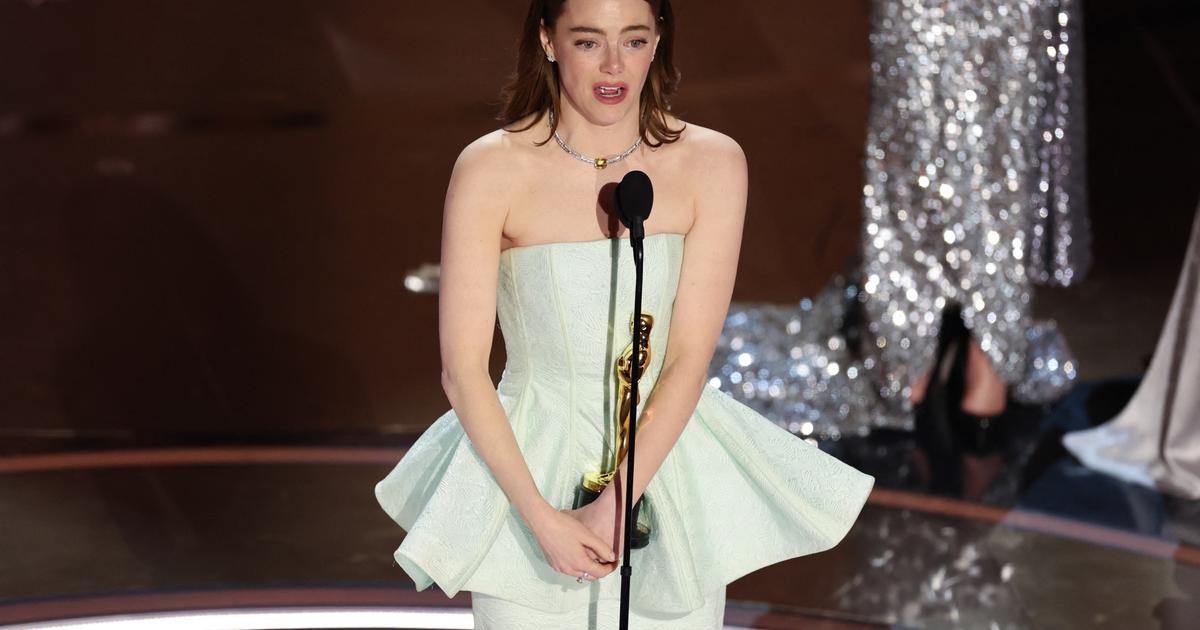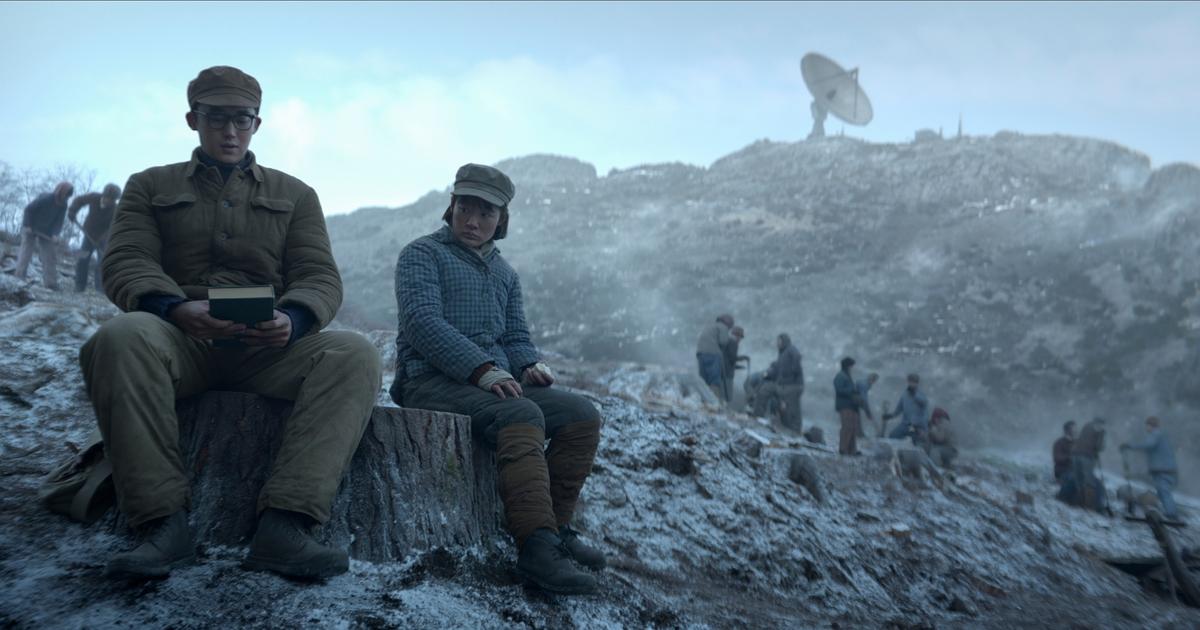Actors Annette Bening and Bill Nighy in 'Return to Hope Gap'.
Annette Bening has been linked too many times with the role of motherhood and the actress has been able to take advantage of the label to dismantle it through her work.
"It has become common for me to be the mother of others in the cinema," she has said on more than one occasion when reviewing some of her films:
American Beauty, Meeting Julia, Boys are fine, Women of the 20th century
.
In
Return to Hope Gap
, she again plays "a woman who has dedicated her life to her son and husband," she describes in an interview by Zoom, "but at the same time she does not respond to the stereotype."
'Return to Hope Gap', by the Englishman William Nicholson, triumphs at the BCN Film Fest
Annette Bening: "I'm always looking for something different"
New ways, old ventilation
Grace, the role played by Bening (62, Kansas), discovers one morning after going to Mass that her decades-long marriage is over.
Her husband - Edward, who stars in Bill Nighy (
Love Actually
) - has fallen in love with another woman and decides to leave.
She cries, screams, gets angry, overturns the breakfast table, says things she regrets, involves her son in the separation.
It does, in the words of the actress, everything that is not expected of a woman.
"Women do not always have to be reasonable," he says.
“On many occasions the characters of women are written from an overly sentimental perspective based on the fact that when one of these situations occurs there is only one response or reaction, the expected one, the reasonable one.
That's why I like Grace so much.
It does not do what is expected of a woman.
He reacts according to how his heart and stomach feel ”, sums up Bening.
Return to Hope Gap
is based on the life of its director William Nicholson.
His parents divorced and the filmmaker was left in the middle of the battlefield and ended up suffering collateral damage.
On the one hand, a mother who forces him to resolve the situation.
“It can be considered politically incorrect: it puts your child at the center of the problem.
It's terrible ”, acknowledges the interpreter.
On the other front, a father who is a paradox.
"Edward needs to feel that there is a justification in what he does, which does not prevent him from really loving her as he should," Bening describes her husband's role in fiction.
"It is also important to understand this character, try to decipher his complexity, not just stay that he is a husband who has had an
affair
, he is a man who tries to do the right thing."
The way in which Nicholson describes the process of decomposition of the couple is inscribed in that part of the history of cinema in which the epic is also in the love of being around the house, monogamy or the traditions that some couples cling to. until they no longer hold them.
Like the Catholic religion that Bening's character is devoted to.
"In real life, people are not heroes," says the actress, "not always up to the occasion."
Return to Hope Gap joins
the
Marriage Story
list
, the most recent example, with antecedents such as
The War of the Rose, Intolerable Cruelty
or
Kramer vs. Kramer
.
Live in the past
The drama premieres in times of pandemic, with an industry in crisis that checks its seams in search of a way out, of its particular new normal.
“Film production is in free fall.
Some are being shot because they have a large budget and others that are more risky, ”says Bening.
“We cannot live in the past, continue in nostalgia.
I have already accepted it, as an actress I will adapt.
We cannot deny the advancement of technology,
streaming
and home theater.
It's a crisis that came from before, cinemas have been closed in the US for a long time ”.
Bening claims to continue receiving scripts.
"There are many projects underway," he says.
Trust that at some point a certain normalcy will return.
And he assumes his share of responsibility in the roles that are to come: “We have to be faithful to reality when we count this moment.
We cannot be trivial in our stories.
The pandemic has meant a great change for the art world ”.
At the time of this interview, Donald Trump had just announced his positive for coronavirus.
The actress, outraged, describes the president of the United States as "arrogant and denial of science."
At that time, there are days until it is known that not only Trump and his wife have been infected, but that the White House has become - almost - a red zone of the pandemic in Washington.
Bening prefers not to anticipate the electoral result.
He makes another reflection: “It depends on the state of mind with which I am, I want to see a dark, hard, bleak movie more than other more vital ones.
The same thing happens to me with reading.
I don't know if it's related only to the pandemic.
Now, for example, I have been reading and watching documentaries on electoral fraud ”.

/cloudfront-eu-central-1.images.arcpublishing.com/prisa/SC75F4U7RJAZLKDEDJBQGOTQCY.jpg)



/cloudfront-eu-central-1.images.arcpublishing.com/prisa/BIFY7AONSBC4TC4T4LSS4TOI7A.JPG)









/cloudfront-eu-central-1.images.arcpublishing.com/prisa/IGZ7GOCXZ5GUPAQ2HWGK6Z76BU.jpg)